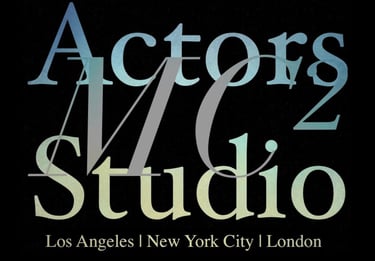The Actor and Human Suffering


The Actor and Human Suffering
by Mario A. Campanaro
It’s tough to be human. It’s not an easy job to be a human being. What I think the actor has the opportunity to do is to examine that—to ask, "What is it to be human?" and "Why do we do what we do?" and "Why do we feel the way we feel?"
Many people don’t realize how difficult it is to be an actor, nor do they understand the complexity of the work. One of the most paradoxical aspects of being an actor—or any artist, really—is the ability to reveal the work in a way that seems effortless, like you’re just living. But the truth is, there’s a lot of work that goes into achieving that level of ease and excellence.
Many have an idea of what acting is, but they don’t realize the depth and struggle involved. As actors, we need to be aware of what it truly takes. If we go through life sleepwalking, we won’t have anything meaningful to connect to for our work. We need full awareness of humanity to invest in what life has to offer, so we can contribute it to our artistic endeavors.
Expanding our consciousness, expanding our awareness in our own lives, and hopefully contributing to others' lives are essential parts of this process. But most importantly, we must connect deeply with others. Ultimately, isn't that the actor's job? To reveal something we can all connect to, so we all feel a sense of belonging, a sense of community, and even healing?
The actor’s responsibility is to understand and reveal the human condition, sometimes in uncomfortable ways, sometimes by confronting pain and suffering. We must look at human suffering and try to understand why it exists. Then, we look within ourselves to see where that suffering lives in us, so we can connect with it authentically and bravely.
People suffer—that's a universal truth. We all carry some form of brokenness. But just as a bone break is easy to identify and understand, emotional wounds often go unrecognized. When we see someone physically hurt, we instinctively ask, "Are you okay? What happened?" But when it comes to emotional pain, we don’t always ask with the same compassion, "What caused this pain?"
As actors, we have an obligation to connect to the character’s pain—artistically and safely. We must connect to their brokenness in a way that helps us understand their life without judgment. It’s easy to judge the actions of a character, but we must ask important human questions with an open heart. "Where did the break happen?" "How did it happen?" "What were the circumstances and relationships that led to this?" "Why does this person behave the way they do?"
By asking these questions with compassion, we begin to understand the motivations behind the character's actions. We recognize that their behavior is a way to improve their existence—an attempt to find peace or solace based on their past experiences. Our job is to enter that character’s world with an understanding of the historical origin of their pain and suffering, just as we would with a broken bone.
We, as actors, are not just story-tellers; we are story-livers. Each one of us has a story worthy of being witnessed. Through our work, we bring light to these stories, and we connect with humanity in ways that transcend judgment, showing the beauty that lies in the healing process.
Copyright © 2025 Mario A. Campanaro, All rights reserved.


